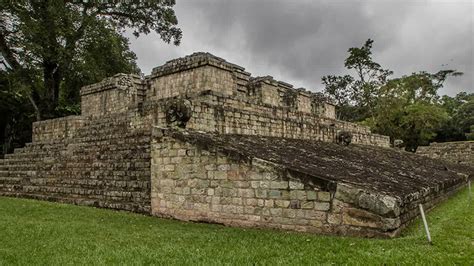Discover the early settlements, influence of Buddhism, unification of territories, relations with Tibet and India, and modernization and development in Bhutan.
Early Settlements in Bhutan
Contents
Early settlements in Bhutan can be traced back to as early as 2000 BC, when prehistoric humans started inhabiting the region. These early settlers were primarily nomadic tribes who moved across the lush valleys and rugged mountains of Bhutan, hunting and gathering for sustenance. As time passed, these tribes began to establish permanent settlements, laying the foundation for the rich cultural heritage that defines Bhutan today.
The earliest recorded history of Bhutan dates back to the 7th century, when the country was ruled by various chieftains. These early settlements were often fortified and strategically located, as they frequently faced invasions from neighboring regions. The architecture of these settlements, such as the dzongs, reflects the need for defense and protection during this tumultuous period of Bhutan’s history.
It is believed that Buddhism reached Bhutan in the 8th century, influencing the way of life and culture of the Bhutanese people. The Buddhist monasteries, or goembas, played a significant role in shaping the early settlements, as they served as centers of learning, spirituality, and community life. The integration of Buddhism with the existing tribal beliefs contributed to the unique religious and cultural landscape of Bhutan.
Throughout the centuries, Bhutan continued to thrive as an agrarian society, with the early settlements depending on farming, animal husbandry, and trade for sustenance. The traditional agricultural practices and communal living fostered a sense of unity and cooperation among the people, laying the groundwork for the harmonious and peaceful society that Bhutan is known for.
Influence of Buddhism in Bhutan
The influence of Buddhism in Bhutan cannot be overstated, as it has played a significant role in shaping the country’s culture, traditions, and way of life. Buddhism was introduced to Bhutan in the 7th century when the legendary Tibetan king, Songtsen Gampo, built two Buddhist temples in Bhutan to subdue evil spirits and spread the Buddhist faith.
Since then, Buddhism has become deeply ingrained in the daily lives of the Bhutanese people, influencing everything from art and architecture to social customs and spiritual practices. The teachings of Buddhism, particularly the principles of compassion, peace, and mindfulness, permeate every aspect of Bhutanese society.
One of the most iconic symbols of Buddhism in Bhutan is the impressive network of monasteries and temples that dot the mountainous landscape. These sacred sites serve as centers of learning, meditation, and religious gatherings, and they are integral to the spiritual well-being of the Bhutanese people.
Furthermore, Buddhism has also had a profound impact on the governance of Bhutan, with the monarchy historically being closely linked to the Buddhist faith. The revered position of the clergy in Bhutanese society reflects the deep-rooted influence of Buddhism on the country’s political and social structures.
In conclusion, the influence of Buddhism in Bhutan is far-reaching and enduring, shaping the country’s identity and guiding its people in their pursuit of spiritual fulfillment and harmonious living.
Unification of Bhutanese Territories
In the history of Bhutan, the unification of Bhutanese territories played a crucial role in shaping the country’s geopolitical landscape. The process of unification began in the 17th century under the leadership of Zhabdrung Ngawang Namgyal, a revered Buddhist master and military leader. He was instrumental in bringing together various warring factions and unifying them under a central authority, laying the foundation for a unified Bhutanese state.
The unification of Bhutanese territories was not without its challenges. Zhabdrung faced resistance from rival regional leaders and external powers vying for influence in the region. However, through strategic alliances and military prowess, he was able to gradually bring the disparate regions under the umbrella of the emerging Bhutanese state.
One of the key strategies employed by Zhabdrung to solidify the unification process was the establishment of a dual system of governance, known as the Chhogyal system. This system empowered both secular and religious leaders to govern their respective regions, while acknowledging the overarching authority of the Zhabdrung. This approach helped to maintain a degree of local autonomy while fostering a sense of unity and allegiance to the central authority.
The unification of Bhutanese territories under Zhabdrung’s leadership laid the groundwork for the later consolidation of Bhutan as a unified nation-state. His vision and leadership not only brought the different regions of Bhutan under a single political entity but also set the stage for the country’s distinct cultural and religious identity to flourish and endure.
Relations with Tibet and India
Throughout its history, Bhutan has had a close and complex relationship with both Tibet and India, two of its neighboring countries. The relationship with Tibet was primarily based on trade and cultural exchange, as the two regions shared a similar Buddhist spiritual heritage. This connection played a significant role in shaping Bhutanese culture and religion, and it also influenced the country’s governance.
On the other hand, Bhutan’s relationship with India has evolved over time, from being a protectorate under British India to becoming an independent nation and establishing formal diplomatic ties with India in 1949. This partnership has been crucial to Bhutan’s economic and political development, as India has been a major trade partner and provider of essential resources.
Furthermore, both Tibet and India have had significant influence on Bhutan’s foreign policy and regional dynamics. The geopolitical tensions and power play between these two neighboring countries have had implications for Bhutan’s own security and territorial integrity, as well as its role in regional politics.
Despite the challenges and complexities that have arisen from its relations with Tibet and India, Bhutan has managed to maintain its sovereignty and distinctive identity while also benefiting from the strategic and economic advantages of its geographical location between these two influential nations.
Modernization and Development in Bhutan
Modernization and development in Bhutan have been significant in recent years, as the country has made great strides in various sectors. The government of Bhutan has prioritized modernization while striving to preserve its unique cultural identity. This balancing act has been evident in the country’s approach to infrastructure, education, and healthcare.
One of the key aspects of modernization in Bhutan has been the development of infrastructure, including road networks and telecommunications. The construction of roads has opened up previously inaccessible areas, enabling greater connectivity and economic opportunities for the rural population. Additionally, the government has invested in improving internet and mobile phone coverage, allowing for better communication and access to information across the country.
Bhutan’s education system has also seen significant development, with an emphasis on improving access to quality education for all. The government has focused on building and upgrading schools, as well as training and recruiting teachers. This investment in education has been instrumental in driving social and economic progress in the country.
Furthermore, Bhutan has placed a strong emphasis on healthcare development, with a focus on improving access to essential health services for its citizens. The government has invested in building new hospitals and medical facilities, as well as training healthcare professionals and increasing access to essential medicines and treatment.
In conclusion, the modernization and development of Bhutan have been characterized by a commitment to progress while maintaining the country’s cultural heritage and values. With continued investment in infrastructure, education, and healthcare, Bhutan is poised to further enhance the well-being and livelihoods of its people.












